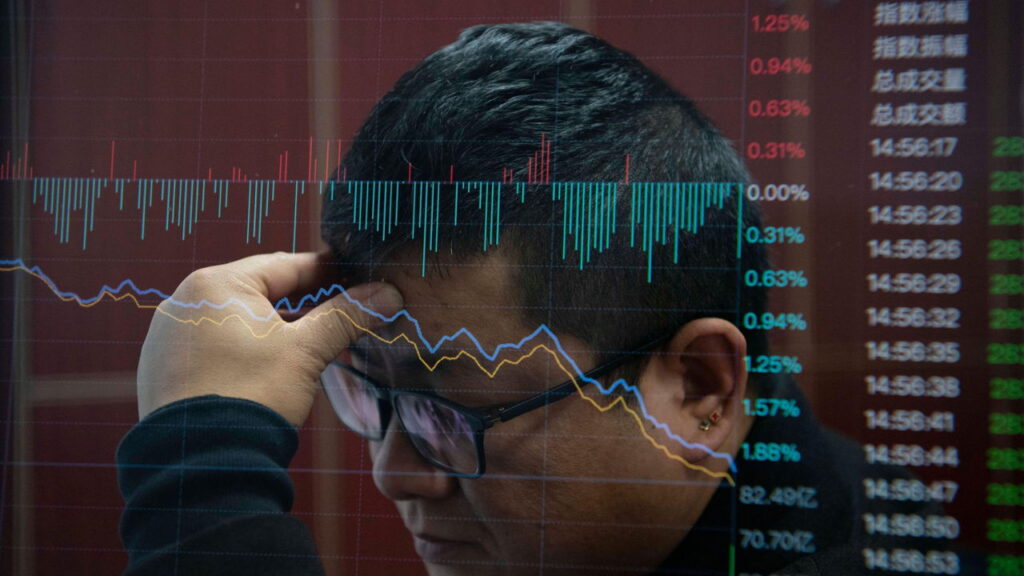As the financial landscape in China experienced tumultuous upheaval at the onset of 2025, a rather grim form of humor took root among investors in the region. A sardonic quip began to circulate, querying, “What is the most valuable asset in the market?” The inevitable punchline elicited chuckles, as respondents pointed out that retail investors, characterized more by enthusiasm than expertise, were the answer. This reflects a stark reality within China’s stock markets, which are overwhelmingly filled with amateur investors. This demographic habitually engages in the stock trading cycle by purchasing shares when prices are high and selling them when those prices slump, thereby facilitating a precarious living for seasoned professionals in the market.
The presence of retail investors in China remains both astonishing and disheartening. In the face of continuously mounting financial losses, these individual traders appear to possess an inexhaustible resilience. Their behavior has led many to compare them to leeks – a popular metaphor that illustrates how, irrespective of the heavy toll the market takes on their investments, they seem to be endlessly replanted and sprouted anew. This phenomenon raises questions about market dynamics and the inherent structure of trading in China, where the sheer volume of retail participants continually influences stock trends, often with detrimental effects.
Investors have long pondered the implications of such a volatile and emotionally-driven trading culture. The interplay between retail investors and institutional players creates a unique environment where inexperience can lead to significant market movements. The tendency among amateurs to react emotionally often drives prices to extremes – creating bubbles when they buy high and exacerbating downturns when they panic sell. This chaotic dance has led to a market environment that can be both unpredictable and susceptible to wild swings in value, frustrating professional investors who rely on more calculated risk strategies.
In this context, the Chinese stock markets can be likened to a vast arena, swirling with exuberance and despair. The jokes shared by investors during these down periods reveal the underlying anxieties and absurdities that characterize the trading scene. The humor serves as both a coping mechanism and a pointed commentary on the folly of relying primarily on retail investors, whose strategies seem to lack the foundational understanding of market fundamentals that seasoned professionals often possess. The resilience and tenacity of these amateur investors can be perceived not just as foolishness, but a byproduct of cultural shifts within China, where stock trading has grown increasingly accessible and popular over the years.
Moreover, as the cycle of losses continues, some observers have noted a troubling trend towards speculation rather than sound investment practices. In a race to recover losses, there emerges a propensity for higher-risk behaviors in hopes of quick profit, leading to an even deeper entrenchment in the volatile nature of the market. This whirlwind of emotions often leads retail investors down paths steeped in uncertainty, yet many persist, driven by dreams of overnight riches or the misguided belief that the stock market is a guaranteed path to wealth.
In summary, the circumstances surrounding the staggering downturn in Chinese markets at the beginning of 2025 encapsulate the ongoing struggle between amateur enthusiasm and professional seasoned strategies. Retail investors, often viewed as the most valuable yet precarious component of the market, continue to embody the dual nature of hope and despair. Their behavior serves as a volatile force in the stock markets, one that can fuel both exuberance and rapid downturns, depending on the prevailing mood. The jokes and sayings reflect not only a grim humor but also a deep understanding of the market’s reliance on the amateur investor, whose actions will undeniably shape the Chinese financial landscape for years to come.









